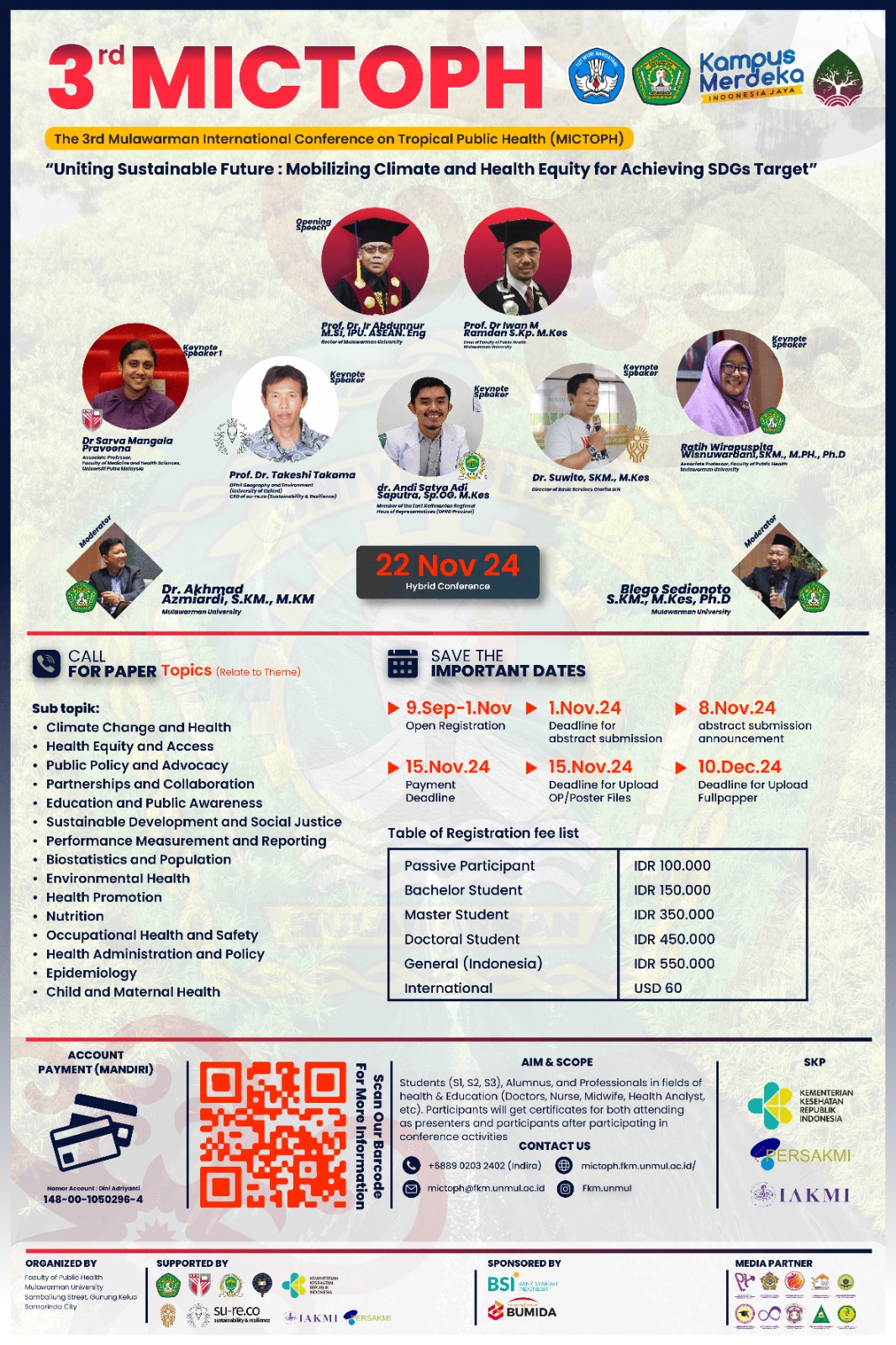EVALUATION OF THE COMPLETENESS AND TIMELINESS PERTUSSIS SURVEILLANCE SYSTEM IN YOGYAKARTA IN 2023
Keywords:
Timeliness, Completeness, surveillanceAbstract
Background : Pertussis cases in Yogyakarta showed an upward trend in 2022 with 11 cases, after no cases in the previous 2 years. Surveillance as one of the tools of control efforts is an important to produce representative data as a guide in decision making. Objective : Evaluation related to completeness and timeliness was carried out to determine the quality of the records and identify delays in diagnosis and notification. Research Methods/ Implementation Methods : This study used secondary data based on the DIY Pertussis form. Timeliness was calculated based on diagnostic delay from symptom onset to the date the specimen was taken. Notification delay was calculated from the date of symptom onset to the date the public health center received notification. Results : 59 laboratory confirmed cases were obtained. 29% of cases were adult, 25.4% infant, 51% female, 34% from Bantul, 27% hospitalized, 64.4% not fully vaccinated. 100% completeness was found in the variables of place of residence and source of reporting, 51% had known first symptoms, 93% had known notification date, 100% had known specimen collection date. The median diagnosis delay was 19 days and the median notification delay was 19 days. Conclusion/Lesson Learned : Sociodemographic data is complete, but there needs an effort to improve by grouping cases based on the epidemiological status and distinguishing positive confirmation of close contact and asymptomatic from symptomatic cases. Long notification times mean that public health actions are not implemented quickly and can lead to widespread transmission. The longer time to make a diagnosis can result in patients seeking treatment in many health services.





